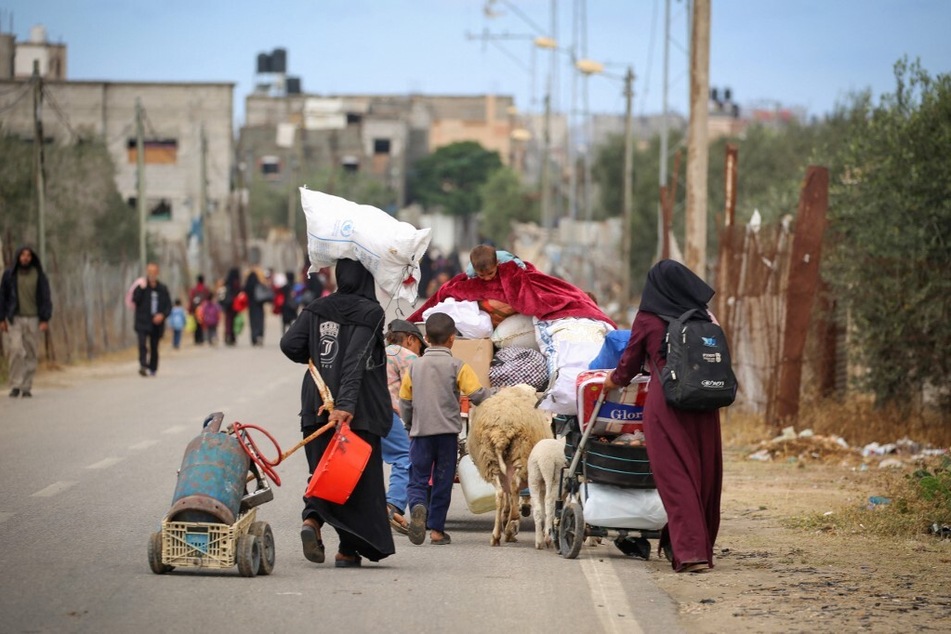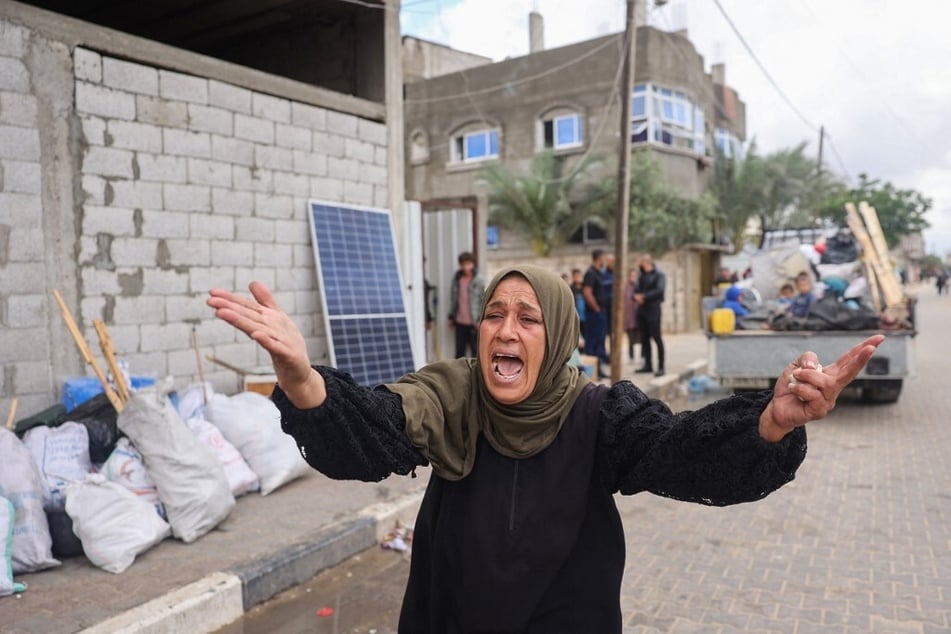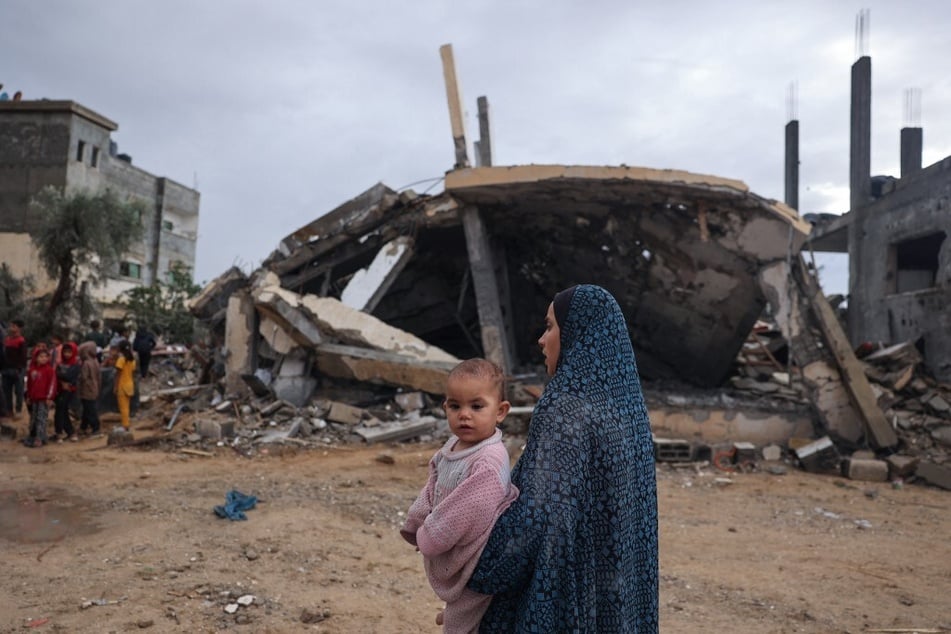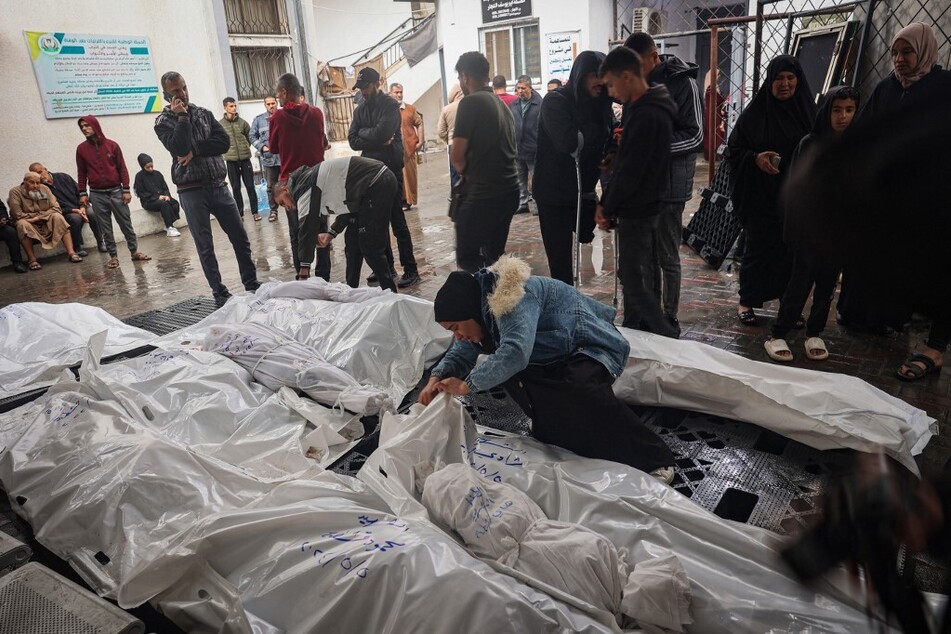Israel sparks fears for Gaza with Rafah mass evacuation order
Gaza - Israel's military on Monday called for the evacuation of Palestinians from eastern Rafah, ahead of a long-threatened ground invasion of the southern Gaza city, the prospect of which has triggered widespread global alarm.

The evacuation announcement followed intensified disagreement between Israel and Hamas over the Palestinian group's demands to end the seven-month assault, during weekend talks in Cairo.
Consultations between two other mediators, the United States and Qatar, were expected on Monday in Doha.
Israeli Prime Minister Benjamin Netanyahu has vowed to invade Rafah regardless of any truce, and despite concerns from the United States, other countries, and aid groups.
The "limited" and temporary evacuation order aimed "to get people out of harm's way" and followed a rocket strike on Sunday that Israel's military said came from an area adjacent to Rafah and killed four soldiers.
"An Israeli offensive in Rafah would mean more civilian suffering and deaths," said the main aid agency in Gaza, the United Nations Agency for Palestine Refugees (UNRWA), which added that it "is not evacuating."
When asked how many people should move, an Israeli military spokesperson said: "The estimate is around 100,000 people."
However, Ossama al-Kahlut, a Palestine Red Crescent representative in east Rafah, said the designated evacuation zone hosts around 250,000 people, many of whom are already uprooted from elsewhere in Gaza.
"My family and I, 13 people, don't know where we can go," one resident, Abdul Rahman Abu Jazar (36), told AFP.
While some people were packing belongings, few were seen in the streets on Monday walking toward the designated areas.
Israel repeatedly bombs Rafah

US Secretary of State Antony Blinken on Friday said Israel had yet to present "a credible plan to genuinely protect the civilians who are in harm's way," and without such a plan, Washington "can't support a major military operation going into Rafah."
Israel has killed at least 34,683 people in Gaza, mostly women and children, as the besieged population faces starvation and famine. About 1.2 million people are sheltering in Rafah, according to the World Health Organization.
In a statement, the Israeli military (IDF) called on Gazans living in eastern Rafah to head to an "expanded humanitarian area" on Gaza's coast near Rafah.
"The IDF has expanded the humanitarian area in Al-Mawasi to accommodate the increased levels of aid flowing into Gaza," the military statement said.
Soon after the war on Gaza began on October 7, Israel told Palestinians living in the north of the Palestinian territory to move to "safe zones" in the south – including Rafah near the Egyptian border.
But Israel has repeatedly bombed Rafah from the air, and Palestinians frequently say that no area of Gaza is safe.
In late March, Gaza's health ministry said at least 12 people were killed when an air strike hit a tent for displaced people in Al-Mawasi.
The Israeli military told AFP at the time that it was looking into the report.
Israeli airstrike kills sheltering Palestinians in Rafah

Medics and first responders in Gaza said Israeli air strikes killed 16 people in Rafah on Sunday, hours after the Hamas rocket fire which killed the Israeli soldiers.
On Sunday, the four Israeli soldiers were killed and a dozen wounded, the army said, when a barrage of rockets was fired towards the Kerem Shalom border crossing between southern Israel and Gaza.
The soldiers were hit while guarding heavy machinery, tanks, and bulldozers stationed in the area.
Hamas' armed wing claimed the attack, which it said targeted Israeli troops.
The strike led Israeli authorities to close the crossing, used to deliver aid into Gaza.
In response, the air force destroyed launchers from which the projectiles were fired, military spokesperson Peter Lerner said.
At the start of the war, Israeli Defense Minister Yoav Gallant said his country would impose a "complete siege" of Gaza blocking food, water, and other supplies.
Continuous appeals for greater access have, according to the UN, led to some improvements recently. Israel said the Erez crossing into northern Gaza and Israel's Ashdod port had reopened for aid access to Gaza. Israel in December reopened the Kerem Shalom border crossing for aid.
Nevertheless, access to basic necessities remains dire in Gaza as Israel controls the ports of entry.
Israel urged to expand access to humanitarian aid

In interview excerpts published Friday, World Food Programme Executive Director Cindy McCain said there is "full-blown famine" in Gaza's north, and reiterated UN calls for "unfettered" aid access.
The head of UNRWA, Philippe Lazzarini, on Sunday said Israeli authorities had barred him from entering Gaza for a second time since the full-scale siege began.
CIA director Bill Burns, a mediator in the negotiations, is expected in Doha to meet with Qatar's prime minister for "emergency" discussions, a source with knowledge of the truce talks told AFP on Sunday.
The source, requesting anonymity due to the sensitivity of the issue, said the meeting aimed "to explore avenues to see if the talks can be brought back on track" after "no breakthrough" in Cairo.
A Hamas official close to the negotiations said Sunday the group's negotiators in Egypt were headed to Doha for "consultations" after the weekend round failed to produce a breakthrough. Hamas negotiators are then due back in Cairo on Tuesday, said Al-Qahera News, which is linked to Egyptian intelligence services.
Negotiators met in Cairo on Sunday without an Israeli delegation present.
Netanyahu, however, made his voice heard. Speaking at a Holocaust Remembrance Day ceremony in Jerusalem, he denounced a "volcano of antisemitism" and international criticism of Israel's actions in Gaza.
"If Israel is forced to stand alone, Israel will stand alone," Netanyahu said.
According to an earlier statement from Netanyahu's office, he again rejected Hamas' demand to end the assault and said "surrendering" to this would amount to defeat.
The Qatar-based political chief of Hamas, Ismail Haniyeh, countered by accusing Netanyahu of sabotaging the talks.
Netanyahu, whose coalition includes religious and ultra-nationalist parties, is on trial in Israel for corruption charges he denies.
Cover photo: AFP

